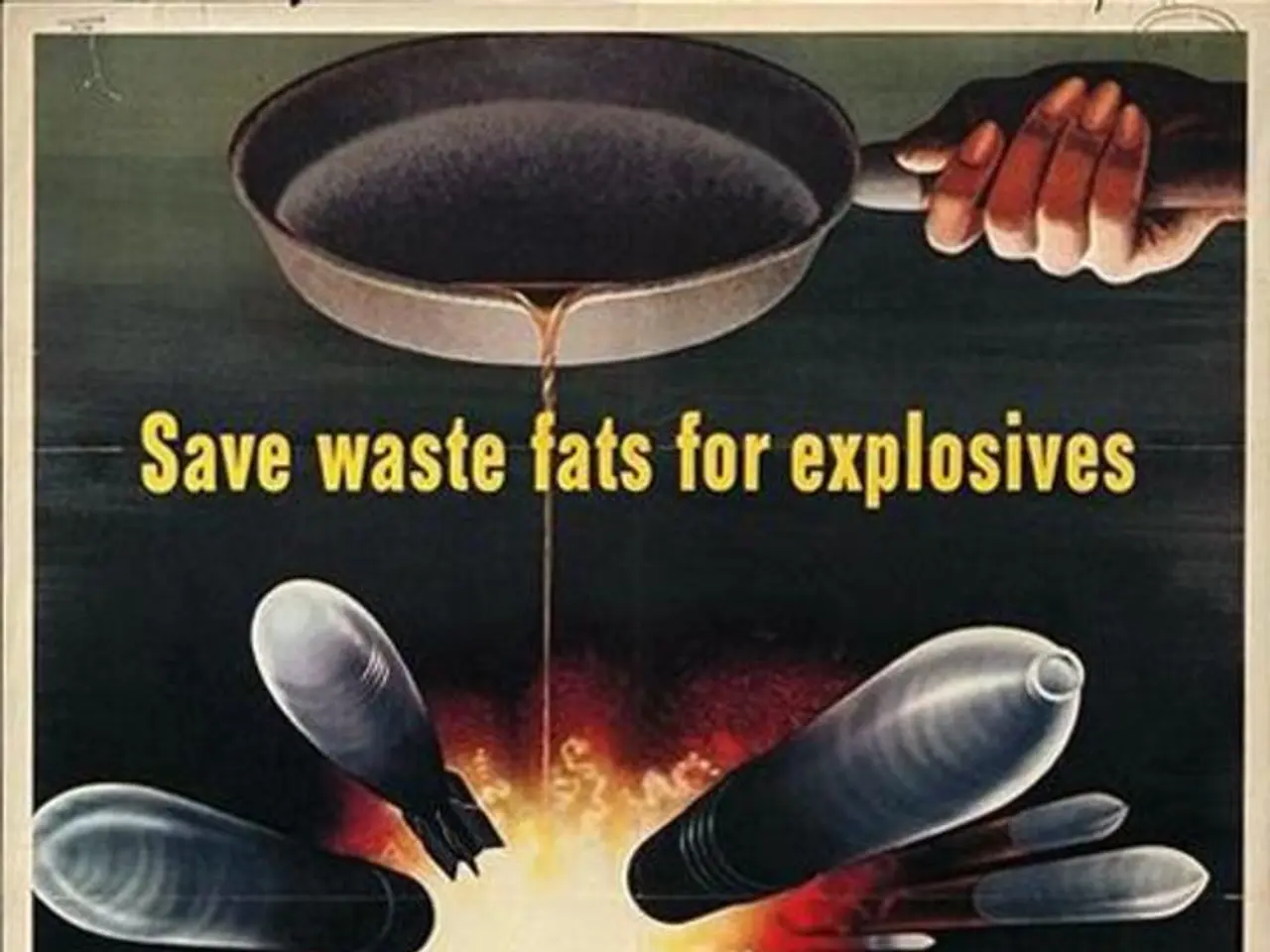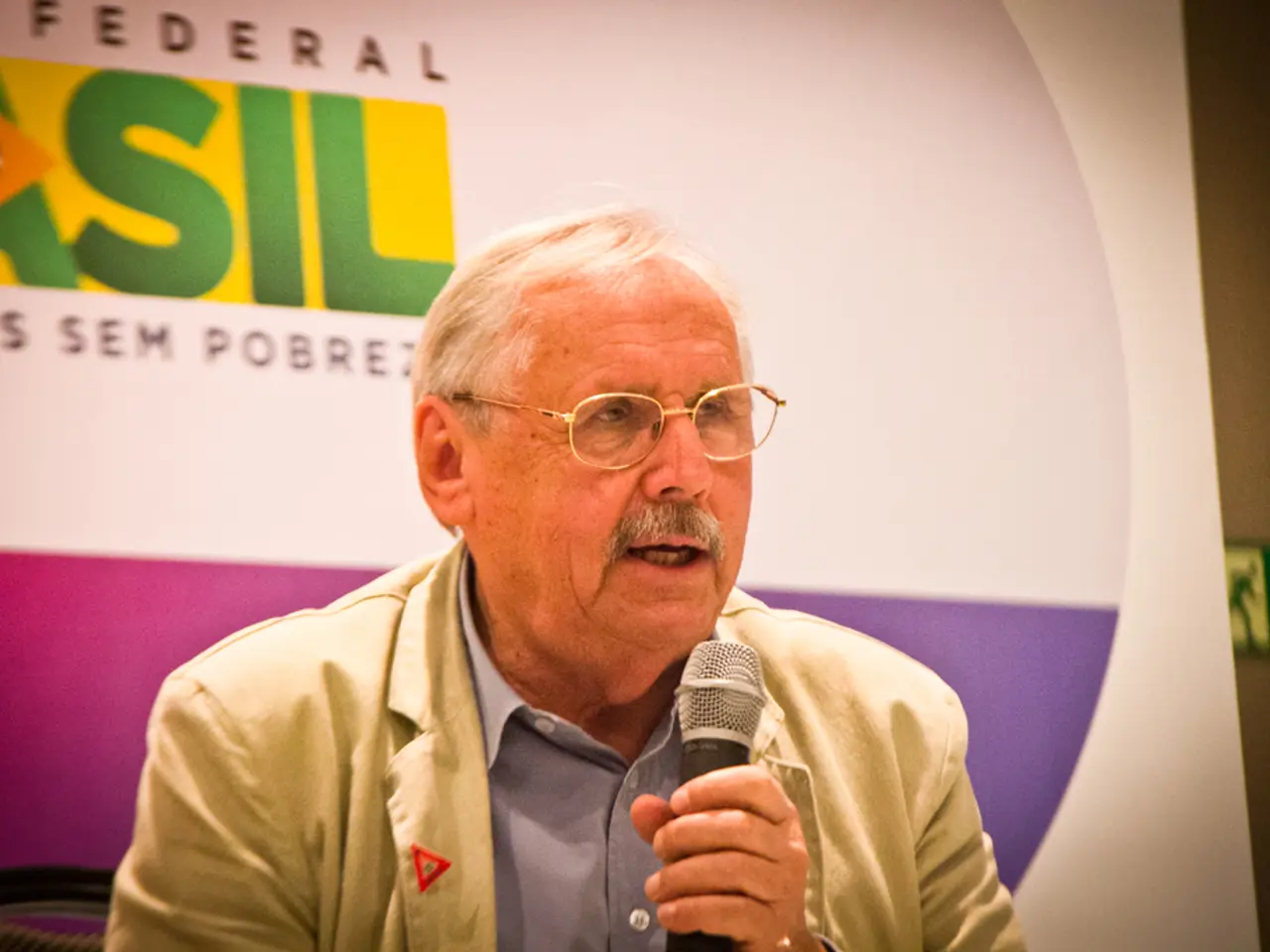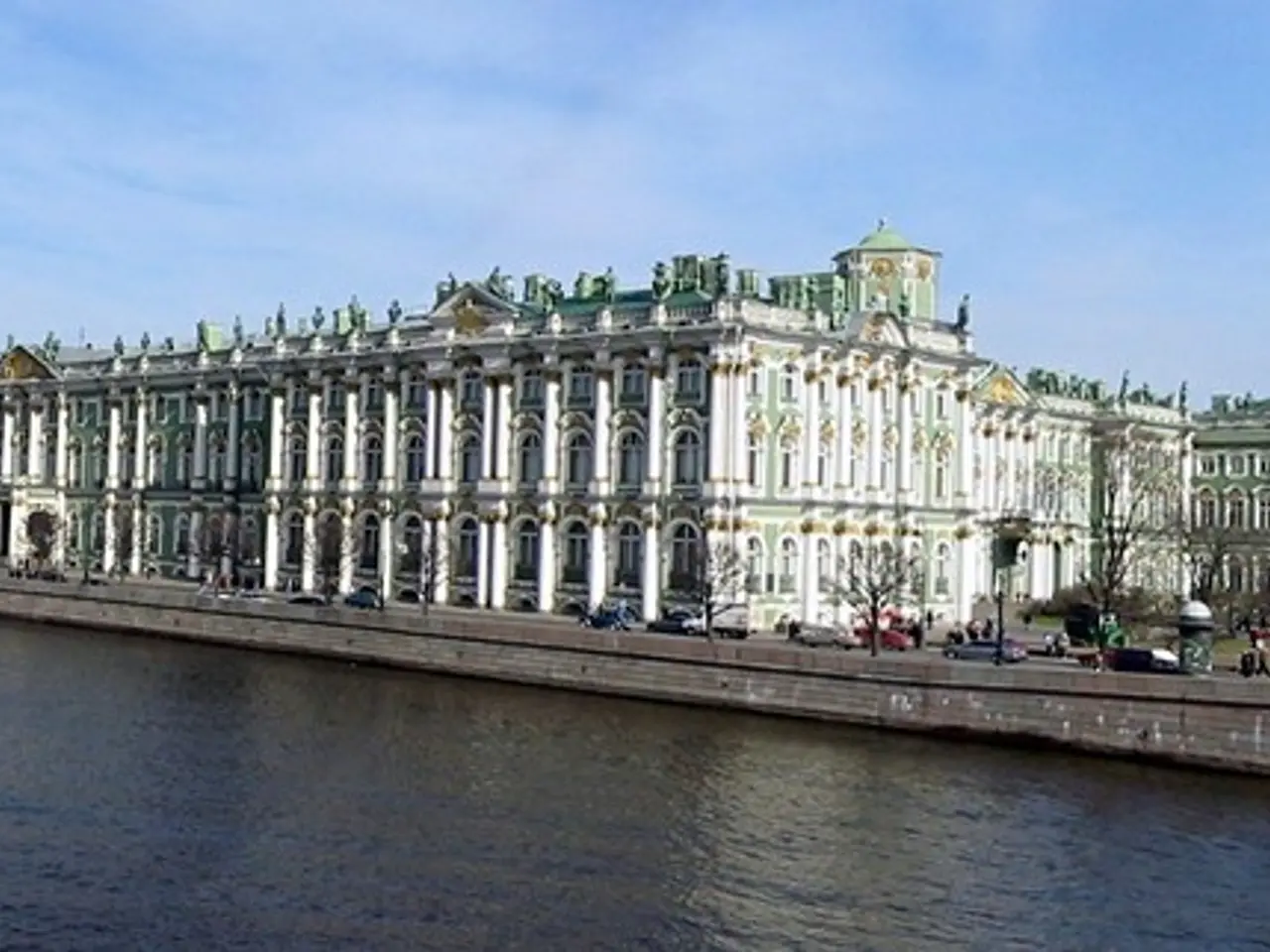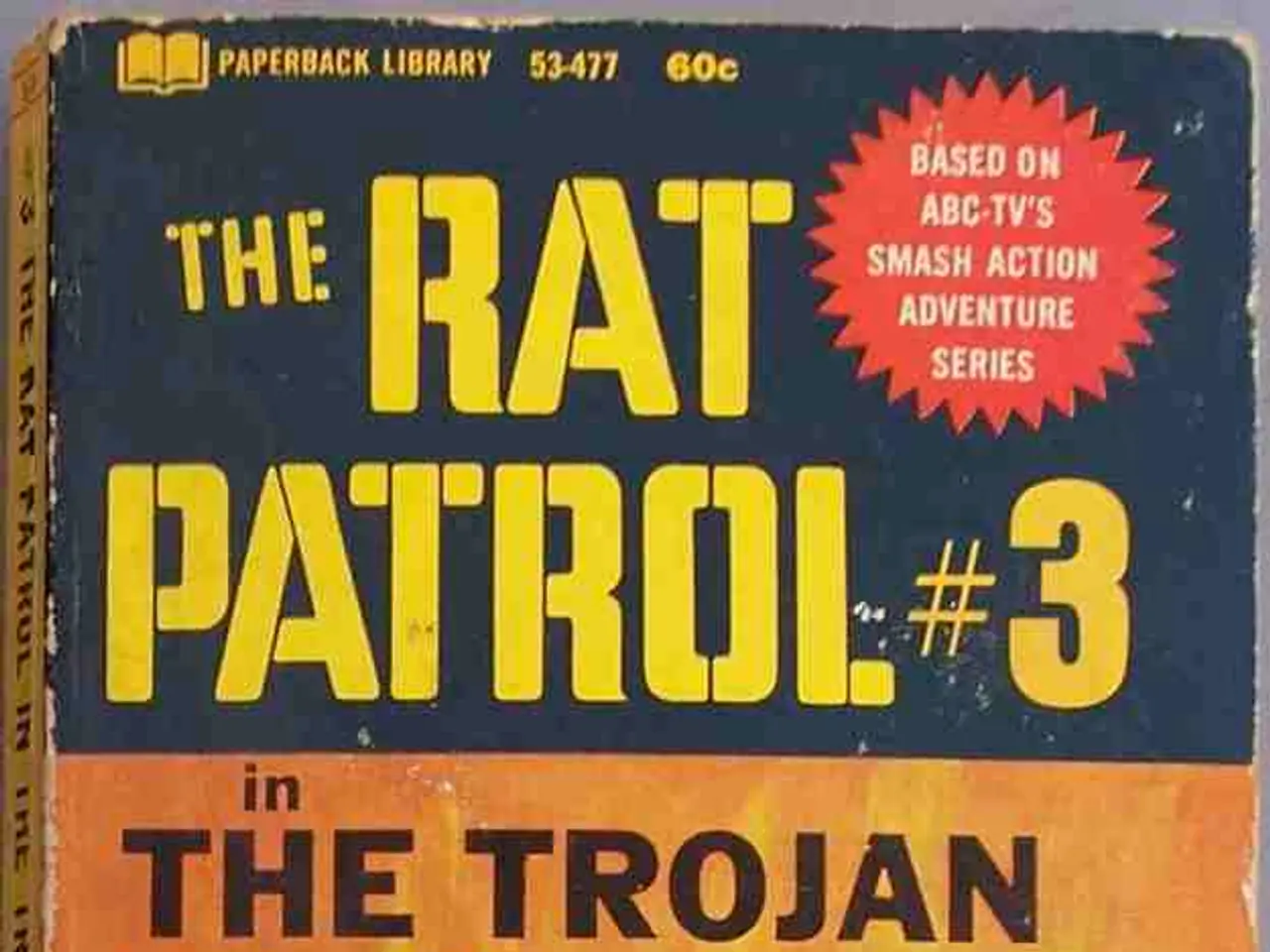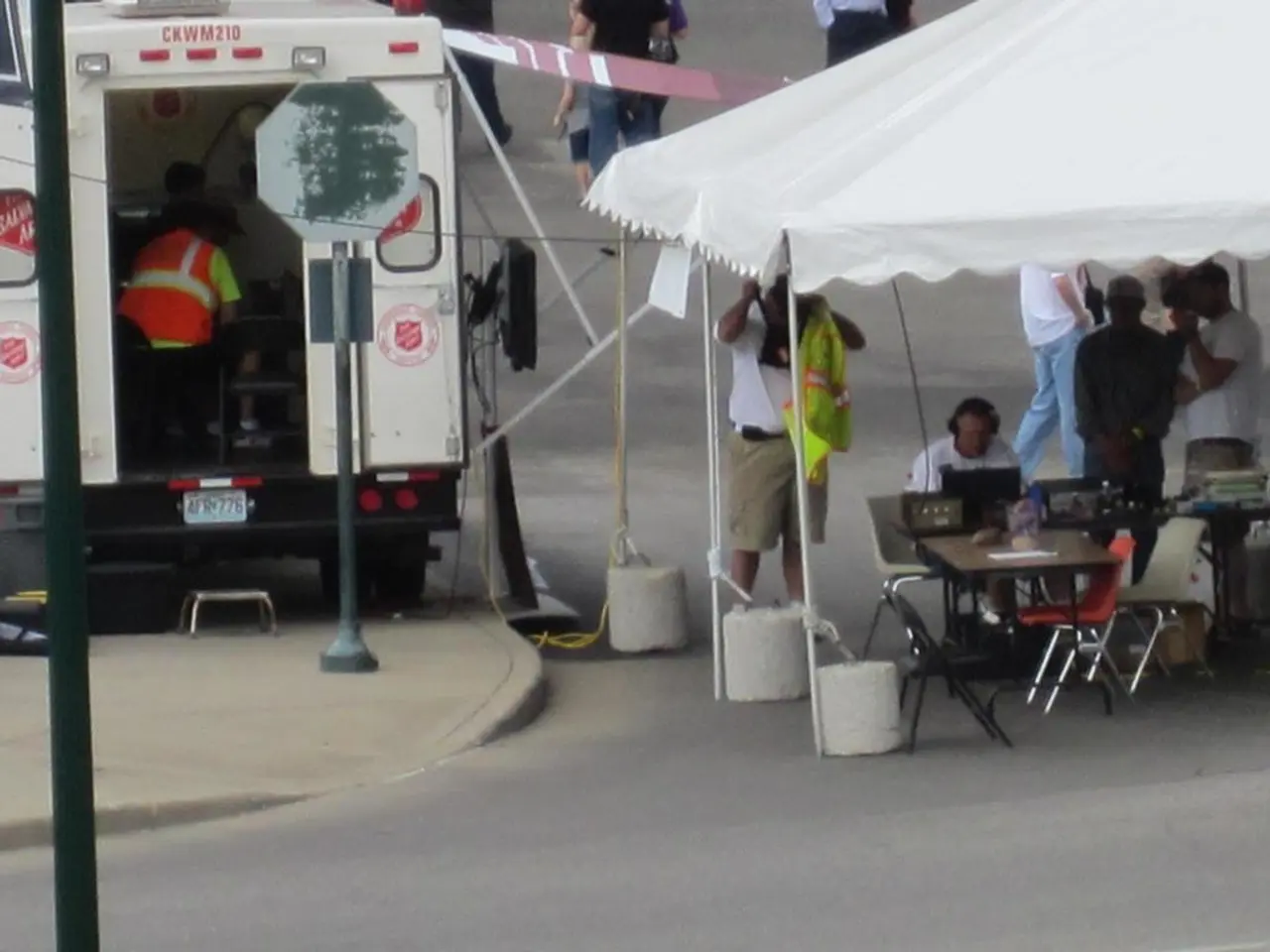Middle Eastern Unrest: Israel-Iran Conflict Chronicles +++ 07:42 US Meddling Discussions Delayed
Workers' ionising radiation protection directive proposal has yet to be approved by the Commission.
Social Media Sharing: Facebook, Twitter, Whatsapp, Email, Print, Copy Link
The tension brews as Chief of Staff Thorsten Frei suggests the possibility of futile US meddling. With escalating indicators, he admitted during ARD that it's still up in the air how the US will react. He heavily emphasized the need for dialogue, especially with forthcoming Iran discussions, including those led by Germany's Foreign Minister, Johann Wadephul, in Geneva. "It's crucial to explore and capitalize on every chord of dialogue that still exists," he asserted.
07:20 Beersheba Rocked: In a morning bombardment attack orchestrated by Iran, Israeli military reports reveal that the city of Beersheba in southern Israel experienced a rocket strike. Initial reports point to at least one projectile impacting near residential, commercial, and industrial facilities. Preliminary damages include a structure completely torn off of at least one residential complex. Estimates suggest that six people sustained minor injuries, and emergency services are currently at the scene. Footage obtained by Israeli channel Kan depicts burning vehicles, thick smoke, and broken windows in residential buildings, while CNN covers fires near office buildings, including a Microsoft office. Beersheba has been a frequent target of recent Iranian attacks.
07:16 Research Center Assault: Israeli air forces claim over 60 combat aircraft launched an overnight assault against military installations responsible for creating missiles, as well as the headquarters of an Iranian nuclear research institute. Instances of bombings were reported in the Tehran area, targeting multiple rocket production industrial facilities. Moreover, a facility responsible for the production of a vital nuclear weapon component was impacted.
07:11 Wadephul Committed to Peacekeeping: According to Foreign Minister Johann Wadephul, his scheduled meeting with Iran's Foreign Minister, Abbas Araghchi, today takes place at a critical juncture. "The situation is precarious and it's exceptionally challenging to predict how the next few days will unfold," Wadephul said in a statement to the "Spiegel". "Negotiations are crucial, not hope," he stated. "I'm endeavoring to prevent further escalation." Wadephul will confer with his French and British counterparts along with Araghchi in Geneva. When probed on whether the German government would assist Israel if Iranian attacks persist and damage rises, Wadephul replied, "I urge Tehran to respect international agreements and avoid instigating more conflicts. But it can't be ruled out. Israel can count on Germany."
06:49 Accolades for Merz's Explanations: Despite the criticism towards Chancellor Friedrich Merz's "dirty work" remark, Armin Laschet defended him. He commended Merz for speaking more clearly and potentially reassessing his stance. Lashet believes that Merz's true intentions were honorable. "I can't help but commend his forthrightness," Laschet explained on the ZDF show "Maybrit Illner". "That's a different language than what the previous SPD chancellor employed. Merz is more open."
06:36 British Optimism for a Diplomatic Solution: British Foreign Secretary David Lammy still believes a diplomatic resolution to the Iranian nuclear dispute is achievable, despite ongoing military conflicts. "We reviewed how Iran requires to make a deal to halt the escalation," Lammy stated, as reported by the British Embassy in Washington after conferences with his US counterpart, Marco Rubio, and US special envoy, Steve Witkoff. "Currently, there seems to be a period of about two weeks to reach a diplomatic resolution." Britain and the US are resolute that Iran will never acquire a nuclear weapon.
06:11 Norwegian Ambassador's Residence Attacked: The residence of the Norwegian ambassador in Israel was targeted by a grenade attack. "There was an explosion near the Norwegian residence in Tel Aviv last night," revealed the communications department head of the Norwegian Foreign Ministry, Tuva Bogsnes. The grenade was thrown into the courtyard of the residence, causing no injuries to ambassadorial staff. Israeli Foreign Minister Gideon Saar asserted in a conversation with X online service that he was in contact with the Norwegian ambassador to Israel, Per Egil Selvaag. The ambassador's residence sustained damage from a "shrapnel grenade," he added. "I condemn this reckless and dangerous act in the strongest terms."
05:43 Air Raid Sirens Ring Across the South: After a sequence of Iranian aerial attacks, air raid sirens reactivated across southern Israel. The Israeli army has announced that sirens were activated "in several parts of Israel following rockets launched from Iran at Israel." The Israeli military is working to intercept these rockets, according to the declaration.
04:50 Repelled Drone Assault: The Israeli air defense claimed that repeated drone attacks from Iran were thwarted overnight. The Dead Sea region witnessed three drones shot down in quick succession, as communicated via Telegram, with warning sirens alerting people beforehand.
03:56 President Herzog Rebukes Criticism: Israeli President Herzog dismissed criticism directed at Prime Minister Benjamin Netanyahu's actions, stating, "The entire Israeli policy supports the government's decision, and I, unreservedly, endorse it," reports Bild newspaper. Israel is keenly aware that "Iran has reached the threshold and was perilously close to a nuclear bomb," with Tehran enriching uranium up to 60%. "There's no other explanation for this other than the ambition to develop weapons," Herzog said, affirming that Israel is now nullifying this threat "before it explodes."
02:47 Response from Hezbollah Militia: The pro-Iranian Hezbollah militia vowed to act "as they deem fit" in response to the war between Israel and Iran, declared its leader, Naim Kassem. The militia is "neutral" in the conflict between the two adversaries, he stated. Earlier, U.S. Special Envoy for Syria, Tom Barrack, cautioned Hezbollah not to interfere in the conflict between its primary backer and Israel. "In the name of President Donald Trump, I can say that would be an incredibly bad decision," Barrack, who is also the U.S. Ambassador to Turkey, said during his initial visit to the Lebanese capital, Beirut.
01:50 New Intelligence Chief Appointed for Iran's Revolutionary Guard: Iran has named Brigadier General Majid Kadami as the new chief of its Revolutionary Guard's intelligence department. His predecessor, Mohammad Kasemi, was killed along with two intelligence officers, Hassan Mohaghegh, and Mohsen Bagheri, in an Israeli airstrike on Sunday, as reported by Iranian state news agency Irna.
00:44 High-Enriched Uranium Secured: An Iranian military commander claimed that Iran secured its high-enriched uranium before Israel's assault, as detailed in a TV interview. "We had moved all the resources," ex-commander and Major General Mohsen Rezai explained. "All materials now remain in our custody," he emphasized. "In addition, the scientists are in our hands. Furthermore, the factories where we manufactured nuclear tools continue to exist." Rezai's account suggests that Iran's leadership had anticipated the war as early as March.
23:24 Airbase Vacated in Qatar: In the midst of the ongoing debate regarding potential US involvement in the conflict, the US has seemingly evacuated its airbase in Qatar over a two-week period, as indicated by satellite images from Planet Labs PBC. Between June 5 and 19, around 40 military aircraft were withdrawn, leaving behind only three transport planes.
22:12 Confirmation of Hits on Chondab Reactor: High-resolution satellite images clearly show that the Israeli air strike on Iran's nuclear facilities in the Chondab site caused significant damage to the reactor's concrete shell. The striking visual comparison between images taken shortly before and after the strike illustrates the noticeable impacts on the reactor dome. The buildings surrounding the reactor were left unscathed. Reports also suggest that facilities responsible for producing heavy water were targeted in Chondab along with the reactor.
21:47 Support for "Dirty Work" Remark: Israeli President Jitzchak Herzog praises German Chancellor Friedrich Merz. "I commend Friedrich Merz for his moral clarity and clear voice, for he speaks the truth. We are defending Europe, we are defending the United States," Herzog said to the "Bild" newspaper. Herzog is apparently referring to Merz's claim that Israel is performing the "dirty work" for the West with its military strikes against Iran.
Reprisal Anticipated: Catch up on all previous events here.
Source: ntv.de, gut/gho/mau/dpa/rts/AFP/DJ
- Middle East Conflict
- Israel War
- Israel
- Iran
- Iran Conflict
- Iran Nuclear Program
- Middle East War
- Political Crisis
Related Insights:
- The U.S. administration remains uncertain about military intervention in the Middle East conflict, as President Trump anticipates a decision within a fortnight. Tensions remain high, with a potential final diplomatic opportunity prior to escalation.
- Western leaders maintain a cautious stance, favoring dialogue over military action and urging restraint from Iran. Public opinion within the U.S. predominantly sides against direct military action and supports peaceful resolutions and limited pressure to counter Iranian nuclear ambitions.
- In the context of the Middle Eastern unrest, there is a pressing need for political cooperation to ensure peace and security, as the region continues to grapple with war and conflicts, exemplified by the ongoing Israel-Iran conflict.
- Amidst reports of rocket strikes on Beersheba, Israeli military installations, and even diplomatic residences, such as the Norwegian ambassador's residence in Tel Aviv, the global news community is closely monitoring peace and security situations in the Middle East, bearing particular attention to the escalating war-and-conflicts between Israel and Iran.
